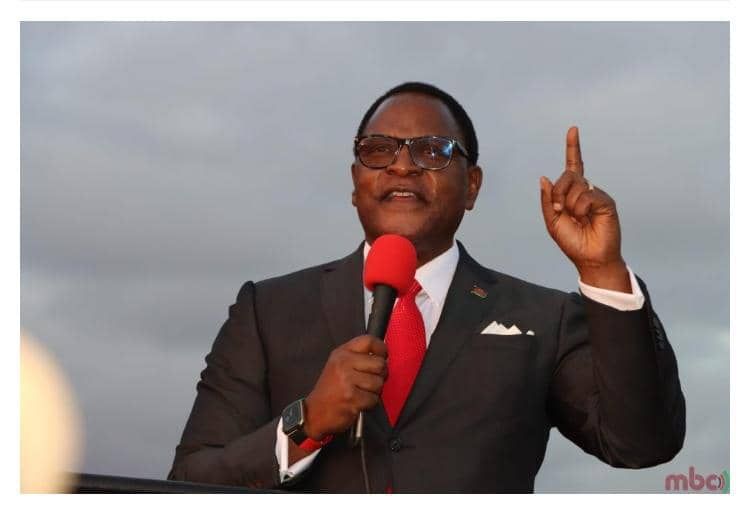By Burnett Munthali
President Dr. Lazarus Chakwera’s recent call for peace and unity, made during a stopover at Area 18 in Lilongwe, comes at a pivotal moment in Malawi’s political landscape. His emphasis on national unity, freedom of association, and the need for hard work in development projects highlights his administration’s vision for a more cohesive and prosperous Malawi. However, the underlying political tensions that Dr. Chakwera seeks to address reveal deeper challenges that the country must confront.
Chakwera’s call for unity despite political differences is both timely and necessary. Malawi’s democracy, like many others, is characterized by robust political competition, which sometimes manifests in divisions that risk destabilizing the nation. By stressing the constitutional right to freedom of association, Dr. Chakwera is reaffirming the principles of democracy, where diverse political opinions and affiliations are not only allowed but protected.

In his speech, the president underlined that no Malawian should face harassment for exercising this right, indirectly addressing concerns of political violence and intimidation that have occasionally marred the country’s political discourse. The commitment to fostering peace, even among political adversaries, is a crucial step toward ensuring that Malawi’s democracy remains strong and inclusive.
President Chakwera’s remarks also reflect an acknowledgment of the balance needed between maintaining political power and ensuring democratic freedoms. As the leader of the Malawi Congress Party (MCP) and head of state, Chakwera must navigate the expectations of his supporters while upholding the democratic values of tolerance and respect for opposition voices. His appeal to all Malawians to focus on unity and development efforts is a reminder that political leadership should prioritize the well-being of the nation over partisan interests.
However, the real test of this call will be in how both the ruling party and opposition parties respond. Will Chakwera’s administration commit to non-partisan governance and ensure a political environment where dissent is respected? And will opposition parties reciprocate this call for unity by engaging in constructive criticism rather than inflammatory rhetoric?
By linking unity to development, Dr. Chakwera is also reinforcing the idea that progress requires collective effort. His appeal to Malawians to keep working hard in various development endeavors suggests a recognition that economic and infrastructural advancement can only be achieved through national collaboration. The praise from MCP Secretary General Richard Chimwendo Banda for the government’s development projects, particularly the improvement of roads in Lilongwe, serves as a tangible example of what unity in purpose can achieve.
Nonetheless, these development gains must be seen across all regions and not be limited to urban centers. Ensuring that the fruits of these projects reach rural areas will be key in convincing Malawians that Chakwera’s call for unity is not just rhetoric but a genuine commitment to uplifting the entire nation.
One of the more critical aspects of Chimwendo Banda’s remarks was his condemnation of an opposition party for glorifying violence. This statement points to the underlying political fragility in the country, where divisions can easily spiral into confrontations. Political violence, even in its verbal or ideological form, can create an atmosphere of fear, making it difficult for people to exercise their democratic rights freely.
Chakwera’s administration, while promoting unity, must also ensure that political violence is met with a firm response, regardless of which party is responsible. It is not enough to call for peace—there must be concrete measures to ensure that those who incite or engage in violence face legal consequences. This will reassure Malawians that their government is serious about protecting their democratic freedoms and promoting social harmony.
In conclusion, President Chakwera’s call for unity and peace is a commendable stance in a country where political differences often lead to tension. His emphasis on respecting democratic freedoms, combined with a focus on hard work and development, offers a hopeful vision for Malawi’s future. However, the success of this call depends not only on the actions of the ruling party but also on how opposition parties and the broader public respond. The challenge ahead lies in translating this message into real, sustained political dialogue and tangible development outcomes that benefit all Malawians, regardless of political affiliation.
As the nation looks toward the next election cycle, Chakwera’s message could set the tone for a more peaceful and collaborative political environment, but it will require a collective commitment to turn words into action.


